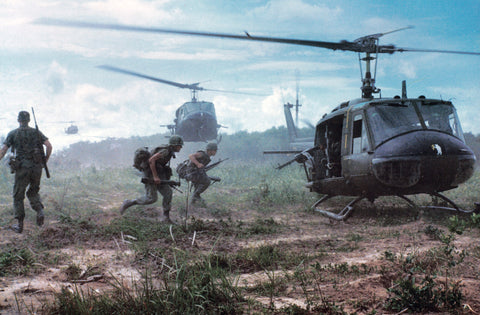
Book Review: ‘The Vietnam War 1956-75’
Andrew Wiest is the founding director of the Dale Center for the Study of War and Society at the University of Southern Mississippi. These credentials suit him well for the daunting task of summarizing the United States’ war in Indochina in “The Vietnam War 1956-75.”
He begins in 1956 as the U.S. took upon itself the perceived Cold War duty of containing the spread of communism in a region of Southeast Asia where colonial ruler France was withdrawing after its defeat by an insurgent army. Wiest presents some convincing evidence for counting the Vietnam War as “one of the most important conflicts of the twentieth century,” due to its postwar effects on Vietnam, the United States, Laos, Cambodia and Australia.
Part of Osprey’s “Essential Histories” series, “The Vietnam War 1956-75” is a revised and updated version of the author’s 2002 book. Wiest does his best to cram the events and changing fortunes of a complex conflict into 144 pages, although aviators might feel that the air war received relatively short shrift.
The Vietnam War 1956-75
by Andrew Wiest, Osprey, June 6, 2014
If you buy something through our site, we might earn a commission.
The updated book includes references to some related current events, such as the Iraq and Afghanistan wars, but there lies a slight problem. In his introduction, Wiest states: “The war did not escalate into a third world war and, if viewed as only a part of the Cold War, one can see a US victory in Vietnam with the eventual fall of the Soviet Union.”
However, that ignores the Soviet Union’s unsuccessful attempt at establishing an ally in Afghanistan, which weakened the USSR in a manner similar to the Vietnam War’s psychological effect on the Americans.
Moreover, events have hurtled onward since the book’s updating to add the Taliban takeover of Afghanistan on Aug. 15, 2021, as a comparison with America’s experience in Vietnam. At the end of a 20-year Afghan war, an even more technologically powerful U.S. had been worn down by the same refusal to quit that humbled the Soviet invaders, and again there was a failure to establish a sound-self-supporting government and military. Stripped of its Cold War context, the similarities in the Afghan experience for both the USA and USSR suggest that the lessons of the Vietnam War may not have been learned after all.
